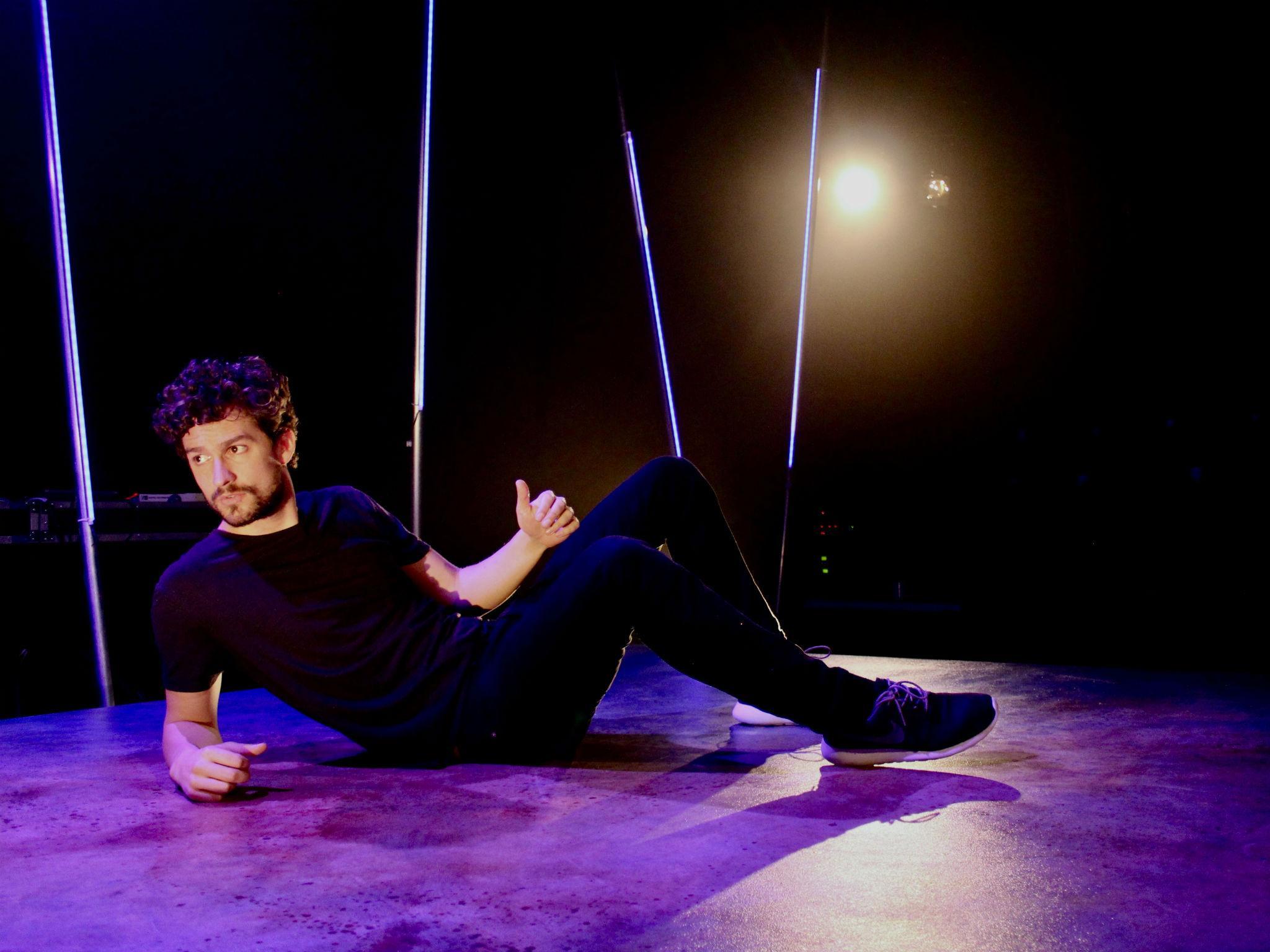Run The Beast Down, Finborough, London, review: Ben Aldridge keeps you compelled by the character's monomania
Lines blur between reality and fantasy in Titas Halder’s debut play

Charlie can’t get to sleep anymore. He’s a would-be hipster in his mid-twenties who has suffered the double blow of losing his high-pressured City job and his live-in girlfriend on the same day. Then a neighbour’s cat is mauled to bits – one of a series of gory dismemberments and near-killings that are presumed to be the work of the urban foxes who have lost their native fear of mankind. The lines between reality and fantasy start to warp. As he festers in his yuppified council flat, Charlie develops an obsession with this “burnt orange” beast. It’s a fixation that takes him backward to his childhood when, as an impressionable 11-year-old, he had intense (and formative-sounding) brushes with a local fox and propels him forward into his bizarre pursuit of the creature now – one that allegedly ends in their murderous confrontation amidst the riots of a city on fire.
Oscar Wilde famously described fox-hunting as “the unspeakable in full pursuit of the uneatable”. Could you characterise this monologue – in which a man undergoing a nervous breakdown detains us with the story of his compulsive yearning towards a fox who seems to represent several contradictory things at once – as “the unreliable in garrulous pursuit of the ineffable”? Well, yes – but only if you meant it as a compliment. With a real flair for rhythmic organisation and shifts of tone, Titas Halder’s highly imaginative script pulls you into a mind where various crazy preoccupations are becoming scrambled and it’s as though musical motifs have started to strangle each other. For example, there’s a vein of vivid satire in Charlie when he says of a smug banking rival about to brag that: “He stank of a new job”. But then the idea of stinking is developed in directions that feel disturbing and ridiculous at the same time, starting with the stuffed otter that gets thrown into the fireplace during a drunken session with colleagues at an opulent City club: “As it burnt, it stank”. He has visions of himself rescuing both his girlfriend from impending urban uproar and a fellow banker, suspected of embezzling, from bloody torture in the boardroom. The potty and the apocalyptic refuse to be disentangled.
The excellent Ben Aldridge keeps you compelled by the character’s monomania for upwards of ninety minutes in Hannah Price’s well-conceived production. The audience sits in an L-shape round the small rectangular stage where the insistent, beautifully integrated soundscape, provided by the live DJ, Chris Bartholomew, and the flashing neon rods and strobes create a disco atmosphere. This social environment, reflective of Charlie’s former hedonism, serves to emphasise his essential isolation now. There are a great many virtues in Aldridge’s supple and subtle portrayal – the ground bass of trusting, genial plausibility as though he imagines he’s talking to folk of the same condescending class; the finely paced escalation into flurries of madness (never overdone) etc. For me, though, his most impressive feat is to show the depth of the character’s affinity with the fox. When Charlie lets loose those thin, unearthly yowls, or rolls on his back in dustbins, the identification is almost sexual in its intensity.
Human Animals, a recent play by Stef Smith at the Royal Court in London, imagined a world in which nature had started to fight back in our overcrowded cities. The piece became a political parable about ethnic cleansing and the hysteria whipped up against minorities as the human race retaliated with genocidal culls. But it would be a simplification of Run The Beast Down to say that Charlie’s love-hate relationship with the beast illustrates the proposition that, to put it baldly, “You are yourself the thing that you fear”. That’s just one of the suggestions thrown up. Halder’s assured and eloquent debut play is all the better for being inexplicit about its main quarry.
Join our commenting forum
Join thought-provoking conversations, follow other Independent readers and see their replies
Comments
Bookmark popover
Removed from bookmarks